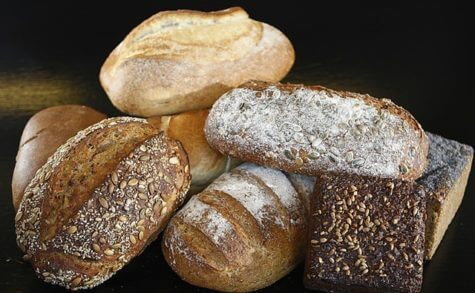REHOVOT, Israel — Is it healthy or not? That’s a question many nutritionists have debated for years when it comes to a household staple: bread. White bread has been banished from many pantries in exchange for wheat or multigrain bread, but are these other types really any better for you?
In a recent study led by researchers with the Weizmann Institute of Science, participants had different internal reactions to different types of bread, leading the team to think that everyone’s bodies simply reacts differently to bread in their system.

The Weizmann researchers conducted a comprehensive, randomized trial of 20 healthy people, comparing the effects of processed white bread and artisanal, whole wheat sourdough bread. Prior to the study, bread already had made up about 10% the total calories of each participant’s’ regular diet. For the experiment, half of the participants significantly increased their bread intake with whole wheat sourdough for a week (to about 25% of their diet), while the other half increased their white bread intake. The sourdough was baked fresh for the participants and delivered to their homes. After the initial week and a two-week period in which both groups didn’t eat any bread, the groups switched diets.
Among the many health effects measured were wakeup glucose levels; calcium, iron, and magnesium levels; fat and cholesterol levels; kidney and liver enzymes; and signs of inflammation and tissue damage. The researchers also examined participants’ microbiomes before, during, and after the study.
Ultimately, the bread itself didn’t have a huge effect on the participants, and the effects they did have varied greatly from person to person. To account for this wide variance, the researchers developed an algorithm to predict how individuals might respond to certain breads.
“The initial finding, and this was very much contrary to our expectation, was that there were no clinically significant differences between the effects of these two types of bread on any of the parameters that we measured,” says co-author Eran Segal, a computational biologist at the institute, in a media release. “We looked at a number of markers, and there was no measurable difference in the effect that this type of dietary intervention had.”
The researchers theorized that something more was going on. They examined glycemic responses of the participants, which had been done in previous studies, and indeed, half of the participants had better glycemic responses to the white bread, while the other half responded better to the sourdough.
So does bread do a body good? In short, it depends on the body.
“The findings for this study are not only fascinating but potentially very important, because they point toward a new paradigm: different people react differently, even to the same foods,” says co-author Eran Elinav, a researcher in the Department of Immunology at the institute. “To date, the nutritional values assigned to food have been based on minimal science, and one-size-fits-all diets have failed miserably.”
The debate will rage on, but in the end, the only person may best know whether bread is positively affecting your health is you.
“These findings could lead to a more rational approach for telling people which foods are a better fit for them, based on their microbiomes,” says Elinav.
The full study was published in the June 6, 2017 edition of the journal Cell Metabolism.
